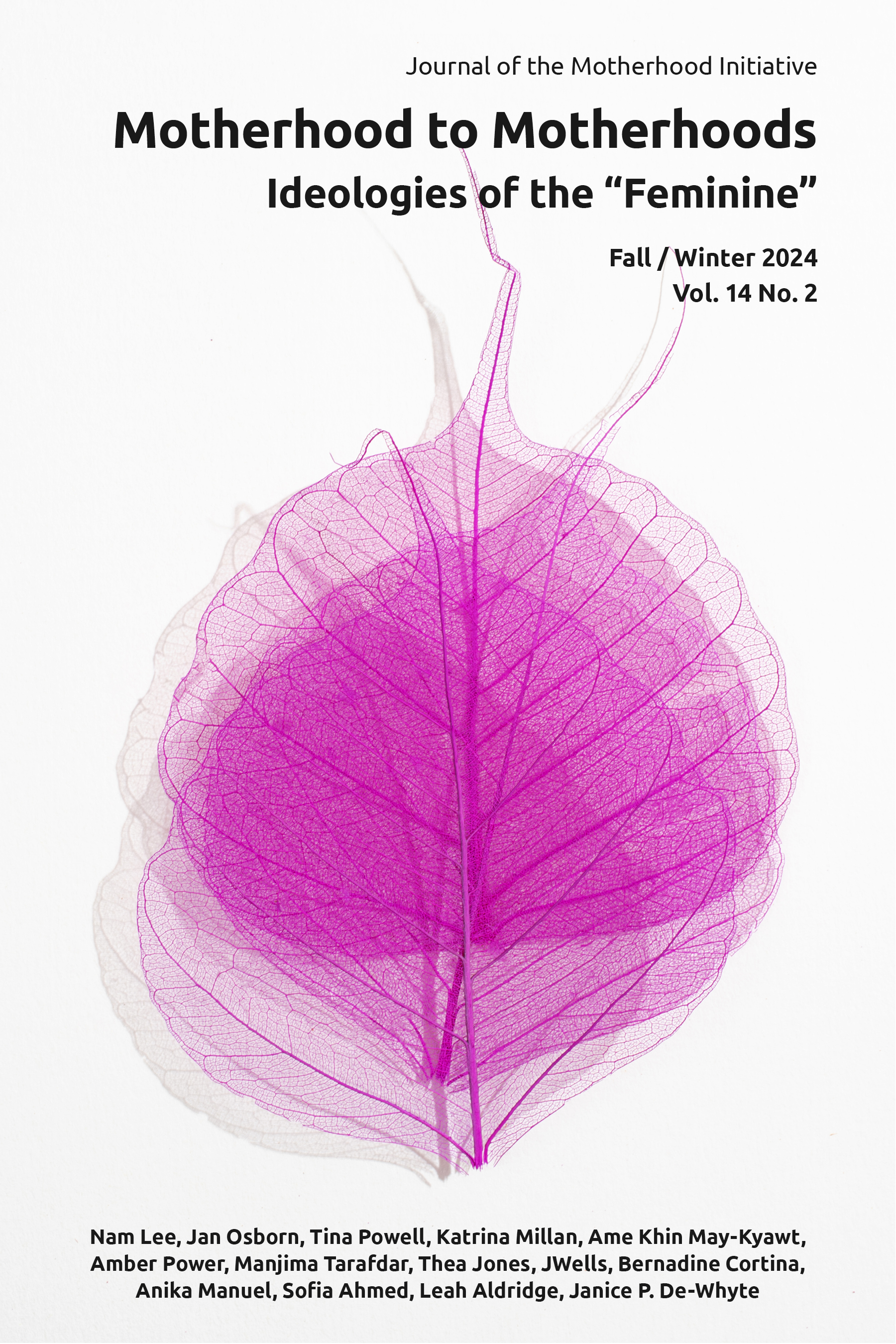A Case for Motherhood as an Intersectional Identity
A Feminist’s Labour of Love
Abstract
There are around 2.2 billion mothers (“Statistics”), and over 77 million live in the United States (US) (United States Census Bureau). Unfortunately, feminists have self-admittedly done a poor job representing the interests of mothers. Shari L. Thurer, for example, asserts that as soon as a woman becomes a mother, “her personal desires either evaporate or metamorphose so that they are identical with those of her infant” (191). In short, she “ceases to exist” (Thurer 191). Moreover, even though women’s unpaid domestic work in the US raises the gross domestic product by 25.7 per cent (McCann), economists often overlook the work of full-time mothers. This article situates mothers within feminist theory and discourse by demonstrating that mothers are not fully represented by feminists or economists and as such are marginalized by both identities. In short, motherhood is an experience that is not adequately addressed by the experiences of women or workers. An intersectional approach will help ensure mothers get the attention they deserve as a social identity in intersectional feminist scholarship.
you want to keep
the blood and the milk hidden
as if the womb and breast
never fed you
(Kaur 223)

Downloads
Published
How to Cite
Issue
Section
License
All intellectual property in relation to material included on this site belongs to the Motherhood Initiative for Research and Community Involvement (MIRCI). All material on this site is protected by Canadian and international copyright and other intellectual property laws. Users may not do anything which interferes with or breaches those laws or the intellectual property rights in the material. All materials on the Motherhood Initiative for Research and Community Involvement (MIRCI) are copyrighted and all rights are reserved. Any reproduction, modification, publication, transmission, transfer, sale, distribution, display or exploitation of the information, in any form or by any means, or its storage in a retrieval system, whether in whole or in part, without the express written permission of the Motherhood Initiative for Research and Community Involvement (MIRCI) is prohibited. Please contact us for permission to reproduce any of our materials. This site may include third party content which is subject to that third party's terms and conditions of use.

